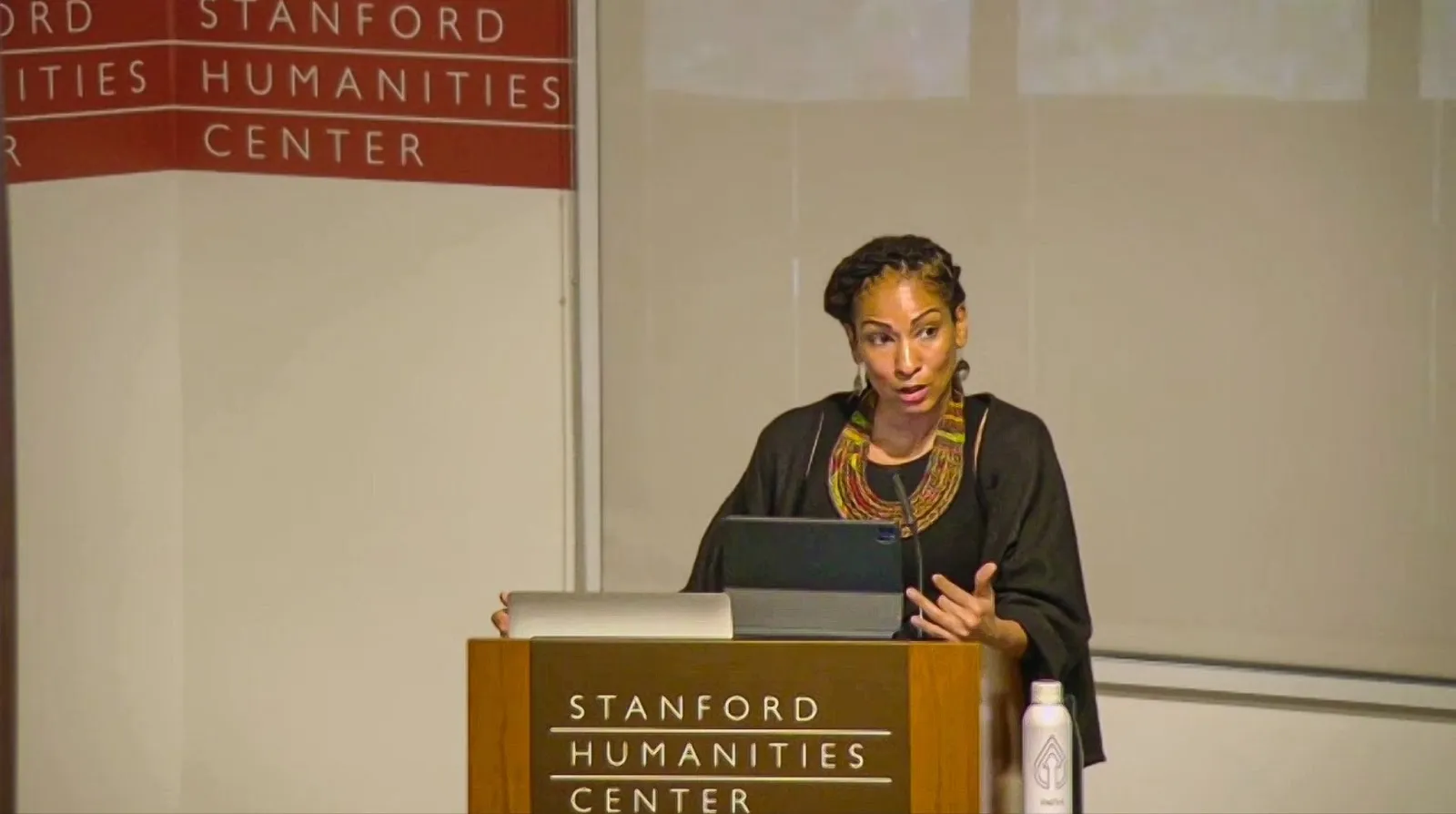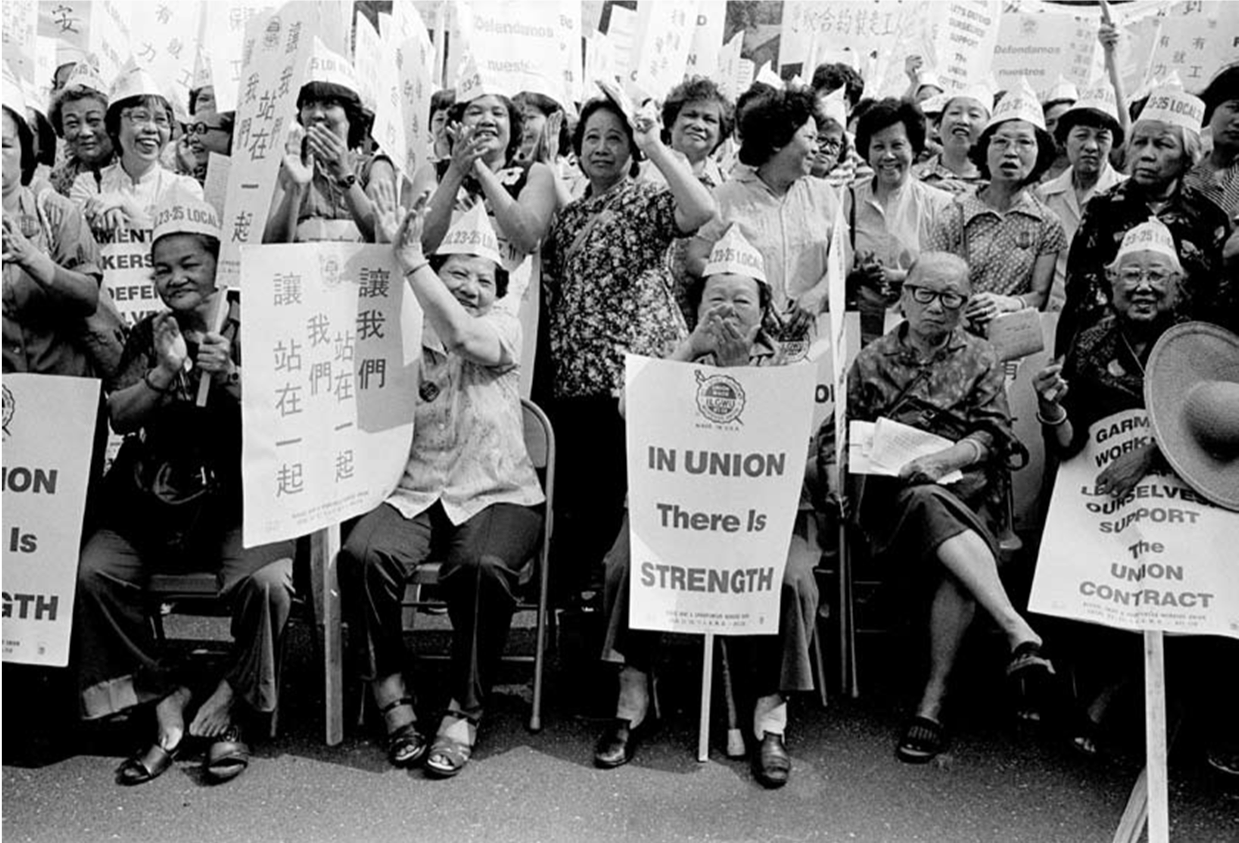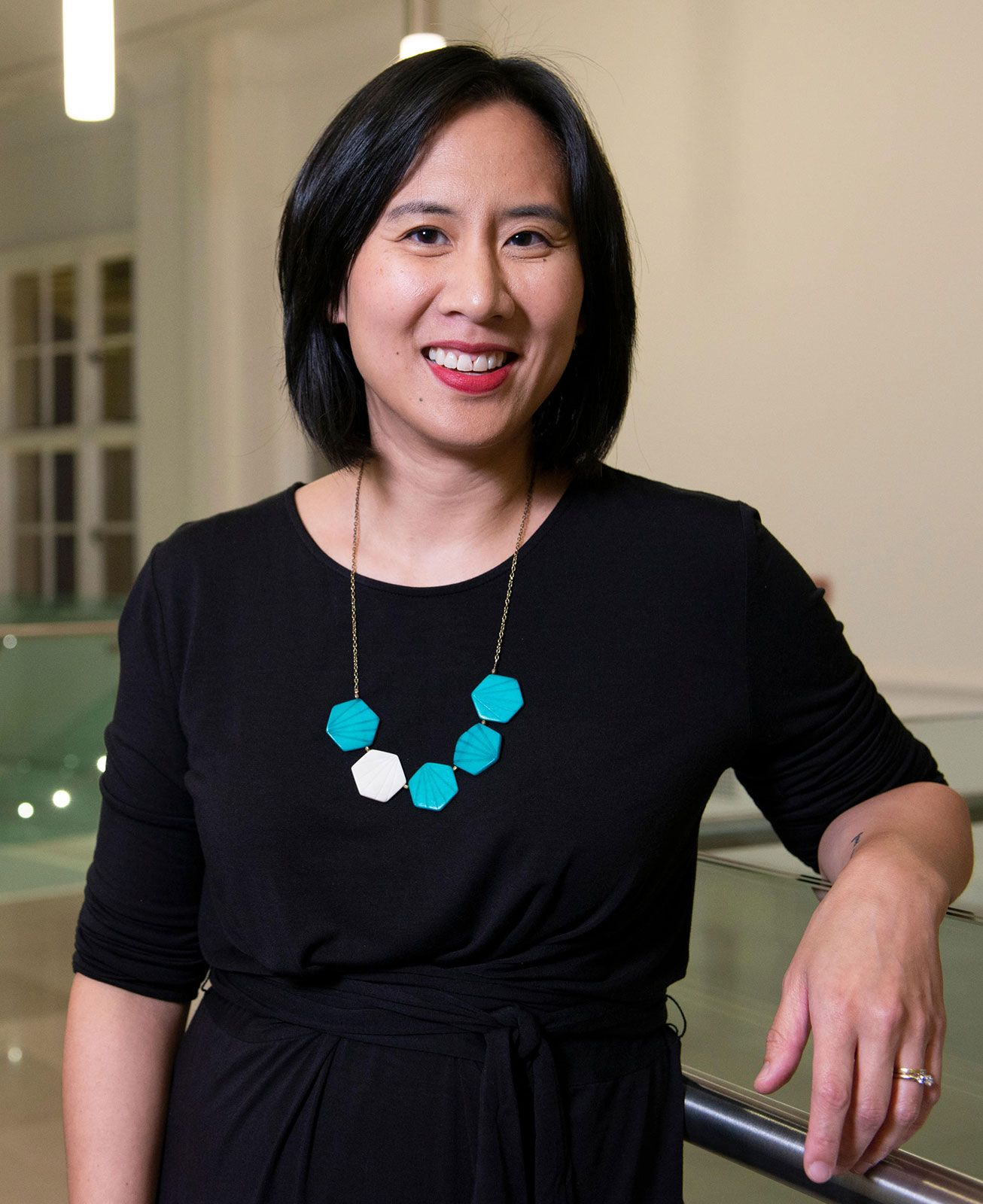Ruha Benjamin’s discourse on AI and social justice challenges the status quo, urging us to rethink the implications of technology in our society. As a prominent sociologist at Princeton University, Benjamin emphasizes the need to infuse human values into discussions about AI ethics. She argues that while the future of technology is often portrayed as bright and transformative, it can just as easily perpetuate systems of oppression if left unexamined. By advocating for the power of creative imagination, Benjamin inspires us to envision a future grounded in social justice rather than corporate interest. Her call to action underscores the critical importance of diverse perspectives in shaping technologies that truly serve humanity.
The intersection of technology and equity has never been more pressing, as thinkers like Ruha Benjamin highlight the importance of integrating ethical considerations into artificial intelligence. In her recent lectures, she invites us to explore alternative futures that prioritize fairness and inclusivity, rather than simply advancing technological efficiency at any cost. With an emphasis on reimagining systems that have historically marginalized certain communities, Benjamin advocates for a holistic approach, merging humanistic insights with technical innovation. This dialogue is crucial as we navigate the complexities of modern advancements, ensuring they do not come at the expense of our social fabric. By prioritizing justice in the technological landscape, we can work towards solutions that uplift all individuals, fostering a more equitable society.
The Intersection of AI and Social Justice
Ruha Benjamin, in her recent Tanner Lectures, emphasizes the critical intersection of AI technologies and social justice, arguing that the promises of AI innovation often come burdened with historical injustices. She articulates that while AI is marketed as a tool for societal improvement, it frequently perpetuates the very oppression it claims to alleviate. For instance, facial recognition technologies disproportionately target marginalized communities, contributing to systemic biases rather than dismantling them. Benjamin’s assertion challenges us to scrutinize the ethical frameworks surrounding AI adoption and to consider who truly benefits from these advancements. Rather than being passive recipients of technology, society must critically engage with these narratives to advocate for systems that respect human dignity and promote equity.
Furthermore, Benjamin points out the hypocrisy in the current tech narrative that heralds elite-driven visions of the future while dismissing essential public goods like affordable housing and public transportation. By framing such societal needs as unrealistic, the tech industry often sidelines critical discussions on how technology should serve humanity rather than the interests of a select few. This conversation is vital as it illuminates the disparities between those who create technologies and the communities that are affected by them. In promoting a more equitable approach, Benjamin calls for a collaborative effort that prioritizes diverse voices at the table—one that encompasses not just technical expertise but also the lived experiences of those impacted by technology.
Imagining a Future Beyond Dystopia
In her compelling argument, Ruha Benjamin urges us to reimagine our futures through the lens of creativity and imagination, moving beyond dystopian narratives often portrayed by mainstream tech visions. She challenges individuals and institutions alike to consider what a radically different world could look like—one that transcends current limitations imposed by surveillance, policing, and societal divisions. By fostering an environment that encourages bold thinking and artistic inquiry, Benjamin believes we can access innovative ideas that prioritize humanity over profit. This shift in focus from merely mitigating harm to actively creating positive change can catalyze transformative societal advancements and a deeper connection to shared human values.
Benjamin’s invitation to rethink the future aligns with a growing discourse around the ethical implications of AI. She acknowledges that while technology’s potential is vast, without intertwining it with human creativity and ethical considerations, we risk repeating the oppressive errors of the past. This call to action implores universities and thought leaders to embrace multidisciplinary collaboration, bridging the gap between technology and the humanities. The goal is to develop AI systems that not only advance technology but also uplift communities and foster justice. By cultivating spaces where imagination and ethical reasoning coexist, society can pave the way for a future marked by equity, understanding, and shared aspirations.
The Role of Universities in AI Ethics
Ruha Benjamin advocates for a crucial transformation in the educational landscape, urging universities to champion AI ethics within the arts and humanities. According to her, institutions must prioritize teaching that connects technological understanding with social consciousness. By cultivating an environment where creative imagination meets technical proficiency, students are equipped to develop AI solutions that reflect the diverse values of society. This interdisciplinary approach not only nurtures critical thinking but also empowers students to envision new paradigms that redefine societal norms and challenge existing power structures that often marginalize voices.
Moreover, Benjamin argues that universities serve as pivotal spaces for fostering dialogue among various stakeholders, including technologists, ethicists, and community members. Through collaborative projects and research initiatives, these institutions can engage students in meaningful discussions around the implications of AI technologies on social justice. This shift would not only produce a workforce mindful of the ethical dimensions of their work but also inspire innovative ideas rooted in empathy and human experiences. In reimagining the role of academia, we can collectively contribute to a future where technology serves the common good and enhances our social fabric.
Dismantling Barriers to Imagination
Benjamin eloquently expresses the need to dismantle the mental barriers that limit our ability to imagine an alternative future. She contends that societal narratives often confine us to incremental changes rather than bold reimaginings of our world. By encouraging individuals to challenge the prevailing notion of what is ‘realistic,’ Benjamin invites us to stretch our creative capacities and envision futures that prioritize compassion and cooperation over competition. This approach recognizes the power of imagination as a tool for social change, highlighting that today’s radical ideas could become tomorrow’s normalized practices.
Dismantling these barriers also requires confronting internalized beliefs about who is allowed to shape our future. Benjamin emphasizes that it’s essential for diverse voices to be part of the conversation surrounding AI and technological development. By including varied perspectives—especially those from historically marginalized groups—we can cultivate a richer collective creativity that addresses societal challenges holistically. Ultimately, empowering more individuals to contribute to this dialogue not only enhances the ethical fabric of technological advancements but also leads to a more equitable distribution of its benefits.
Critiquing the Tech Elites’ Narrative
Ruha Benjamin challenges the narratives propagated by tech elites regarding the future of technology and its relationship to social good. She highlights that while these leaders often present their visions as altruistic, the underlying motivations can be self-serving. Their focus on superintelligence and Mars colonies distracts from pressing societal issues such as systemic inequality and public welfare. Benjamin urges the audience to critically assess these narratives, questioning the legitimacy of claims made by those seeking to reshape our realities without considering the implications for diverse communities. Through her critiques, she challenges us to redefine success in terms of collective well-being rather than the pursuit of individual or corporate gains.
Additionally, Benjamin argues that the cavalier attitude of tech elites towards ethical considerations is troubling, as it often leads to harmful consequences for vulnerable populations. The allure of groundbreaking AI advancements can blind stakeholders to the very real social injustices that technology can exacerbate. By shining a light on these disparities, Benjamin calls for a more enlightened approach where ethical implications are paramount in the development and implementation of technology. Recognizing that the future of AI is inextricably linked to the realities of social justice allows for a more equitable landscape where innovations serve a greater purpose.
AI, Mathematics, and Human Values
In her thought-provoking analysis, Ruha Benjamin addresses the misconception that AI operates on a morally neutral basis, deriving decisions purely from mathematical algorithms. She argues that this framing is dangerous, as it neglects the social and historical contexts that shape human experiences and values. By relying solely on computational depth without considering the ethical dimensions, we risk perpetuating systemic biases that have long plagued marginalized communities. Benjamin’s critique urges us to integrate human values into the fabric of AI development, ensuring that technological advancements contribute positively to the social good rather than simply optimizing efficiency for its own sake.
Moreover, Benjamin highlights the necessity of incorporating diverse viewpoints when discussing AI and its applications. Mathematical formulations may provide a veneer of objectivity, but they often lack the nuance required to address complex societal challenges. By emphasizing the importance of human experience and ethical reasoning, Benjamin advocates for an approach that balances technical proficiency with social responsibility. This dual focus ensures that AI technologies are not just advanced but are also reflective of the society they are meant to serve, ultimately leading to greater accountability and equity in technology outcomes.
Encouraging Interdisciplinary Collaboration
Ruha Benjamin emphasizes the importance of interdisciplinary collaboration as we navigate the evolving landscape of AI and its impact on social justice. She asserts that the most pressing issues we face today cannot be addressed within siloed disciplinary boundaries; instead, diverse knowledge systems must come together to forge comprehensive solutions. Engaging with experts from the humanities, social sciences, and technological fields allows for a more holistic understanding of the societal implications of AI developments. By fostering an environment that values diverse perspectives, we create opportunities for innovative ideas that promote equity and inclusivity.
In her call for collaboration, Benjamin also highlights the crucial role of community voices in the technological discourse. As tech solutions increasingly influence everyday life, it is vital to include those who will be most affected by these technologies in the decision-making process. This participatory approach not only enriches the conversation around AI ethics but also ensures that technological advancements are responsive to societal needs. By empowering communities to contribute to shaping their futures, we pave the way for building more just and equitable technology that respects human rights and fosters social cohesion.
Reimagining Public Goods in a Tech-Driven World
Benjamin’s lecture prompts us to rethink the role of public goods in a world increasingly dominated by technology and corporate interests. She argues that viewing public essentials—such as healthcare, transportation, and housing—as impractical is a disservice to society. Instead, we should envision these goods as foundational elements that enable a thriving, healthy community. In a future where technology can drive down costs and enhance efficiency, it is critical to ensure that these innovations are harnessed to bolster public welfare, providing equitable access to all. Benjamin’s vision highlights the need for a paradigm shift where technology serves public interests rather than undermines them.
Additionally, Benjamin insists that redefining public goods must occur alongside a broader advocacy for social justice. In moving beyond a utilitarian perspective on technology, society must engage with the ethical implications of its implementations, ensuring they contribute positively to marginalized groups. The challenge lies not only in promoting access to technology but also in shaping it to address systemic inequities that persist across various sectors. By imagining a world where public goods are prioritized alongside technological advancements, we can create more just systems that uplift all members of society and foster a sense of belonging and equity.
The Vital Role of Creative Imagination in AI Futures
In her compelling remarks, Ruha Benjamin underscores the importance of creative imagination in shaping the future of AI and technology. She challenges the audience to move beyond fear and negativity surrounding technological advancements, advocating for a more hopeful and imaginative outlook. Benjamin posits that creative thinking can lead to innovative solutions that address social injustices, allowing us to visualize alternatives that defy conventional expectations. By fostering a culture of imaginative inquiry, we can explore uncharted territories that prioritize human values, inclusivity, and equity, ultimately redefining our relationship with technology.
Furthermore, Benjamin’s call for creativity extends beyond individual imagination; it beckons collective efforts to envision futures rooted in justice. By engaging diverse arts and humanities perspectives in the technological discourse, we open the door to broader possibilities that incorporate our shared humanity. This collaborative spirit enables us to challenge dominant narratives that often sideline critical social issues, ensuring that the development of AI reflects a commitment to human welfare. Ultimately, embracing creative imagination as a guiding force for future technology can lead us to environments that uplift and empower all people, forging a more equitable and just society.
Frequently Asked Questions
How does Ruha Benjamin connect AI and social justice in her lectures?
In her Tanner Lectures on AI and social justice, Ruha Benjamin discusses how artificial intelligence often perpetuates oppression rather than alleviating human suffering. She advocates for a critical examination of AI technologies, emphasizing that solutions should not solely stem from tech elites but also include diverse social perspectives to ensure human values are prioritized in the future of technology.
What is Ruha Benjamin’s perspective on AI ethics?
Ruha Benjamin critically examines AI ethics by highlighting the dangers of relying on algorithms that can reinforce structural inequalities. She argues that while AI is often viewed as a neutral decision-making tool, its deployment can harm marginalized communities, akin to the historical implications of the eugenics movement, underscoring the need for ethical considerations embedded in the design and implementation of technology.
How does Ruha Benjamin envision a socially just future with AI?
Ruha Benjamin envisions a future where AI is designed with social justice principles at its core. She challenges society to reimagine technology not as a mechanism for surveillance and control but as a means to enhance human well-being and creativity, advocating for transformative practices that dismantle societal barriers and promote equitable access to resources.
What role does creativity play in Ruha Benjamin’s vision for technology and social justice?
In her lectures, Ruha Benjamin stresses the importance of creativity in reimagining technology’s role in society. She calls for a shift from merely attempting to reduce harm through AI to completely rethinking the systems themselves, leveraging arts and humanities to inspire innovative solutions that prioritize human values and foster inclusive communities.
Why does Ruha Benjamin critique tech elites in relation to AI and social justice?
Ruha Benjamin critiques tech elites because she believes they often sell dystopian visions of the future, framed as altruistic, while acting from self-interest. By questioning their authority as stewards of social good, she emphasizes the necessity of including diverse voices in discussions about AI’s impact on society to move towards a genuinely just and humane future.
What examples does Ruha Benjamin provide to illustrate the harms of AI technologies?
Ruha Benjamin cites several examples, such as facial recognition software leading to false arrests and automated systems in healthcare that prioritize efficiency over equity. These instances illustrate how AI technologies marketed as progressive can exacerbate existing social injustices, demanding a re-evaluation of who benefits from technological advancements.
How can the arts and humanities inform discussions on AI and social justice, according to Ruha Benjamin?
Ruha Benjamin argues that the arts and humanities provide critical insights into human experience and ethical considerations, which are essential for discussing AI and social justice. By incorporating these fields, society can better address the complexities of human values, enabling a more nuanced understanding of how technology interacts with social dynamics and injustices.
What are the implications of Ruha Benjamin’s call for a renewed focus on inquiry in AI and social justice?
Ruha Benjamin’s call for a renewed inquiry emphasizes the need for interdisciplinary collaboration that includes diverse knowledge systems in the development of AI. This approach aims to dismantle conventional thinking and encourages stakeholders to envision innovative, just technological futures that challenge existing power structures, prioritizing human dignity and social equity.
| Key Points |
|---|
| Ruha Benjamin challenges the notion that the future shaped by AI must be dystopian. |
| Tech elites often present their visions of AI futures as altruistic but are driven by self-interest. |
| AI technologies can create oppression rather than liberation, often harming marginalized groups. |
| Benjamin critiques the framing of AI as a morally neutral decision-making technology. |
| She advocates for integrating creativity and imagination into discussions about technology and society. |
| Benjamin calls for a need to dismantle societal barriers in our thinking about possible futures. |
Summary
Ruha Benjamin AI and Social Justice emphasizes the importance of rethinking our approach to technology and its implications for society. By critiquing the narratives surrounding AI, Benjamin urges us to imagine a future that transcends the limitations posed by current technological paradigms. She advocates for a collective vision that prioritizes human values and creative solutions, questioning the motives of tech elites and the societal harm often perpetuated by ‘efficient’ AI systems. In her view, a reimagined future can only emerge through inclusivity, creativity, and a critical examination of our existing assumptions about progress.



